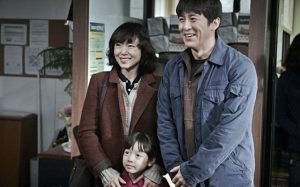“BTS: Burn the Stage”: Episodes 1 & 2

I imagine that for the members of BTS, presenting an idealized version of their real selves was par for the course. But with “Burn the Stage,” they have come to terms with who they truly are and are confident enough to show it to the public. It is difficult to explain why this first episode was so moving for me. Certainly, there is the aspect of seeing Asian Representation so beautifully presented; and in a manner that doesn’t exoticize these young men as strange creatures from a foreign land.








